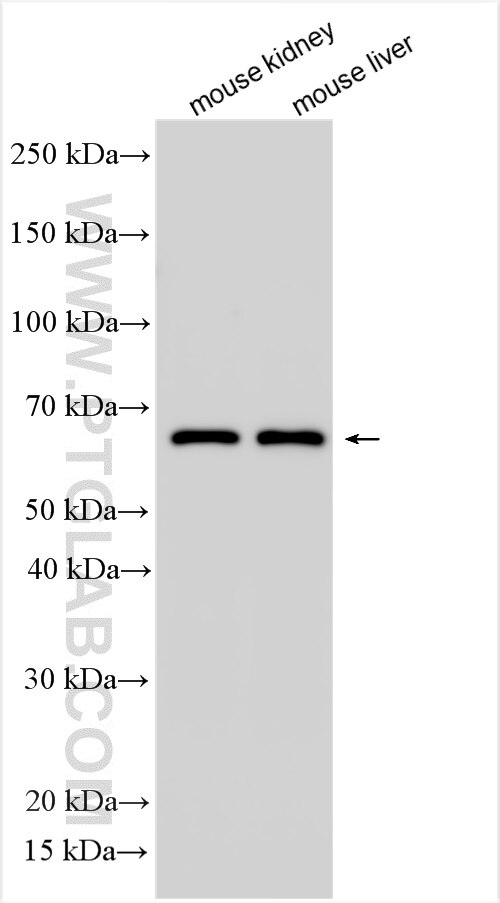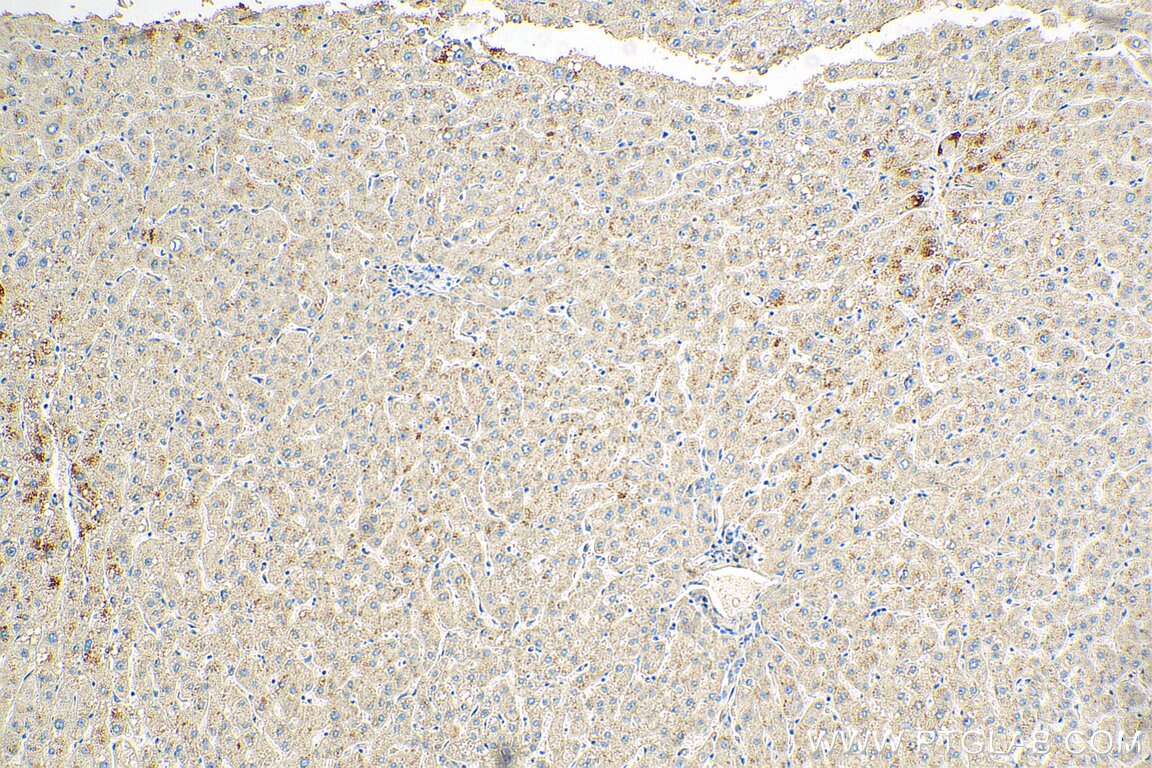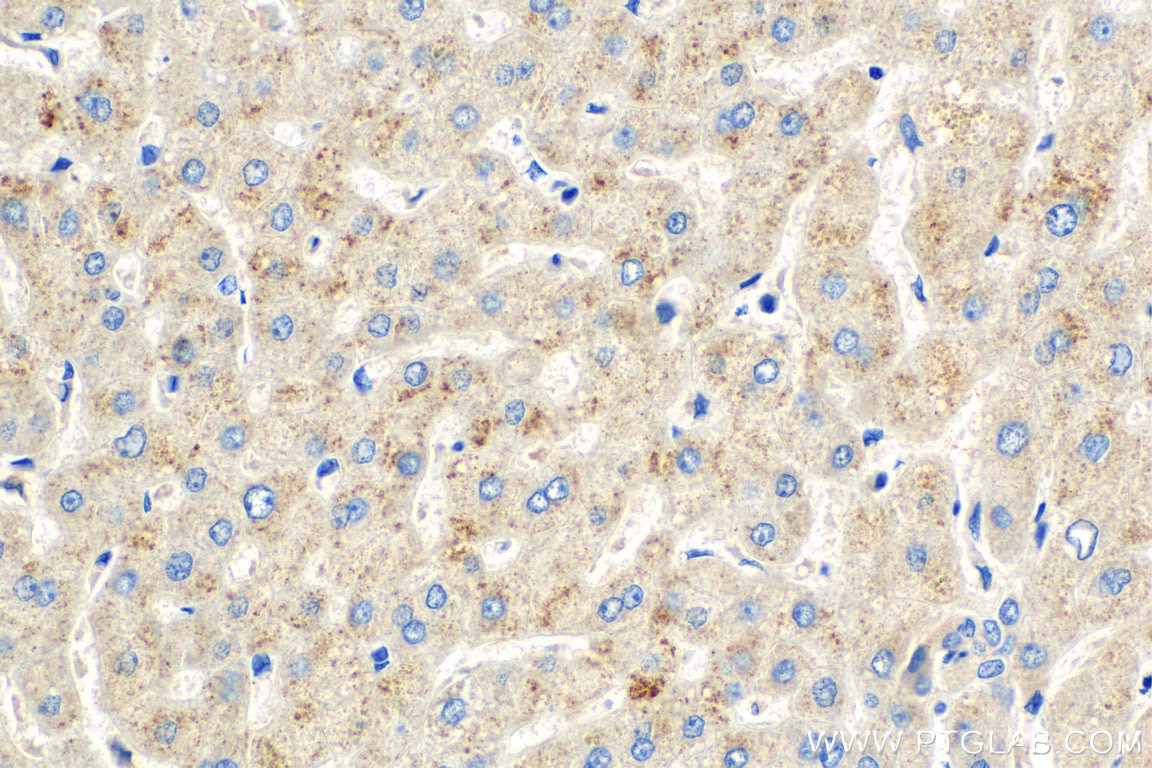Tested Applications
| Positive WB detected in | mouse kidney tissue, mouse liver tissue |
| Positive IHC detected in | human liver tissue Note: suggested antigen retrieval with TE buffer pH 9.0; (*) Alternatively, antigen retrieval may be performed with citrate buffer pH 6.0 |
Recommended dilution
| Application | Dilution |
|---|---|
| Western Blot (WB) | WB : 1:500-1:2000 |
| Immunohistochemistry (IHC) | IHC : 1:50-1:500 |
| It is recommended that this reagent should be titrated in each testing system to obtain optimal results. | |
| Sample-dependent, Check data in validation data gallery. | |
Product Information
55252-1-AP targets MASP2 in WB, IHC, ELISA applications and shows reactivity with human, mouse samples.
| Tested Reactivity | human, mouse |
| Host / Isotype | Rabbit / IgG |
| Class | Polyclonal |
| Type | Antibody |
| Immunogen |
Peptide Predict reactive species |
| Full Name | mannan-binding lectin serine peptidase 2 |
| Calculated Molecular Weight | 76 kDa |
| Observed Molecular Weight | 68 kDa |
| GenBank Accession Number | NM_006610 |
| Gene Symbol | MASP2 |
| Gene ID (NCBI) | 10747 |
| RRID | AB_3086437 |
| Conjugate | Unconjugated |
| Form | Liquid |
| Purification Method | Antigen affinity purification |
| UNIPROT ID | O00187 |
| Storage Buffer | PBS with 0.02% sodium azide and 50% glycerol, pH 7.3. |
| Storage Conditions | Store at -20°C. Stable for one year after shipment. Aliquoting is unnecessary for -20oC storage. 20ul sizes contain 0.1% BSA. |
Background Information
Mannan-binding lectin serine protease 2 (MASP2) is a serum protease that plays an important role in the activation of the complement system via mannose-binding lectin. MASP2 contains a 15-amino acid signal peptide, the 3 amino acids essential for the active center of a serine protease, and calcium-binding residues in the epidermal growth factor like domain.
Protocols
| Product Specific Protocols | |
|---|---|
| IHC protocol for MASP2 antibody 55252-1-AP | Download protocol |
| WB protocol for MASP2 antibody 55252-1-AP | Download protocol |
| Standard Protocols | |
|---|---|
| Click here to view our Standard Protocols |








